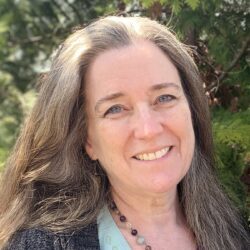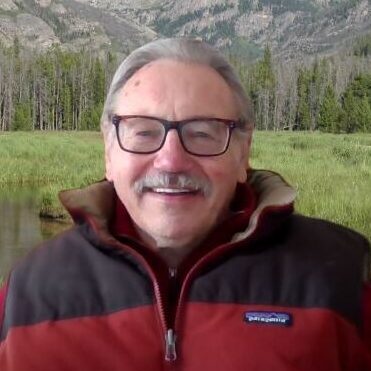Main Content
Check out resources, links, and information for wetland scientists and environmental professionals.
Instructor Bios
Meet the renowned instructors who teach in our wetlands courses!
Deborah Henson, PhD, CPSS, PWS

Deborah is a Certified Professional Soil Scientist and Certified Professional Wetland Scientist, with a doctorate from the University of Massachusetts Amherst in Plant & Soil Sciences, specializing in wetland soil pedology and plant-soil interactions in wetland environments. Deb has more than thirty years of experience as a wetland scientist. She started her career as an environmental professional working for environmental consulting firms in New Jersey in the late 1980s and early 1990s. After completing her doctoral studies at UMass Amherst, she was hired there as full-time faculty; and since 2011 she has been managing the interdepartmental Environmental Science Program. Her campus teaching includes full-semester courses in “Wetland Soils,” “Environmental Soil Science,” and “Soil Science & Management.” She also teaches a wide assortment of wetland science and soil science short courses and workshops for UMASS Extension and the Massachusetts Department of Environmental Protection. She is co-author of the recently updated Massachusetts Handbook for Delineating Bordering Vegetated Wetlands.
Courses Taught by Deborah Henson
Ralph Tiner, M.S., M.P.A., SWS Fellow

Ralph Tiner, M.S., M.P.A., SWS Fellow has more than 40 years of practical experience in wetland delineation and is a nationally recognized authority in the field. He recently retired from the U.S. Fish & Wildlife Service where he directed wetland mapping in the Northeast United States as part of the U.S. Fish & Wildlife Service’s National Wetlands Inventory (NWI). He is a nationally recognized expert on wetland delineation and has been actively involved in improving wetland delineation techniques for decades. In addition, he was compiler and principal author of the Federal Interagency Wetland Delineation Manual, which was published in 1989 and is the standard for identifying and delineating wetlands in New Jersey.
Ralph has written extensively on the subject of wetlands and is the author of several field guides including: Field Guide to Non-tidal Wetland Identification, Maine Wetlands and Their Boundaries, A Field Guide to Coastal Wetland Plants of the Northeastern United States, and In Search of Swampland, as well as an update of the Wetland Indicators book entitled Wetland Indicators: A Guide to Wetland Formation, Identification, Delineation, Classification, and Mapping. His most recent books are: Tidal Wetlands Primer: An Introduction to Their Ecology, Natural History, Status, and Conservation and Remote Sensing of Wetlands: Applications and Advances (for which he is senior editor and authored several chapters).
In addition to writing about wetlands, he has been teaching wetland identification and delineation courses through the Rutgers Office of Continuing Professional Education Office since the mid-1980s.
Courses Taught by Ralph Tiner
Wetland Certification Programs
Learn about your options for earning a credential in the wetlands field.
Rutgers Wetland Delineation Certificate
Rutgers University’s nationally-recognized Wetland Delineation Certificate will teach you how to accurately delineate wetlands.
The Wetland Delineation Certificate is awarded to participants who attend and successfully complete assignments for the following three (3) training courses. Participants must also complete an online exam with a score of 70% or better.
- Vegetation Identification for Wetland Delineation: North OR Vegetation Identification for Wetland Delineation: South
- Hydric Soils
- Methodology for Delineating Wetlands
NOTE: When you enroll in the series, you should complete the Vegetation Identification for Delineating Wetlands (North or South) and Hydric Soils courses prior to the Methodology for Delineating Wetlands course. If you are not familiar with wetlands, hydrology, or vegetation, we strongly recommend that you complete Introduction to Wetland Identification prior to enrolling in the Certificate Series courses.
Army Corps of Engineers Wetland Delineator Certification Program
In 1992, the U.S. Army Corps of Engineers (ACOE) established a program for the training and certification of individuals as wetland delineators. The intent of the Wetland Delineator Certification Program (WDCP) was two-fold.
- To improve the quality and consistency of wetland delineations submitted to the Corps; and,
- To streamline the regulatory process by developing procedures for expediting review and consideration of delineations submitted by certified delineators.
From 1993-1994, the Corps ran pilot certification testing in three districts – Baltimore, Jacksonville, and Seattle. However, the Corps never conducted certification testing thereafter. The Corps published proposed rules for the WDCP on March 14, 1995. No further action has been taken as the Corps is awaiting publication of the Final Rule in the Federal Register. As such, there is currently no official certification program offered through the ACOE.
It is important to note, however, that the proposed rules serve as guidelines for the minimum requirements needed to perform accurate wetland delineations. Inconsistent wetland delineation reports are routinely submitted to the ACOE, which require significant modification and, in many cases, re-delineation efforts. Persons interested in doing successful wetland delineation work are strongly encouraged to get training in the ACOE Wetland Delineation Manual.
Society of Wetland Scientists Professional Certification Program
The Rutgers University Wetland Delineation Certificate Series is accepted by the Society of Wetland Scientists Professional Certification Program (SWSPCP) as part of the requirements for both their Wetland Professional in Training (WPIT) and Professional Wetland Scientist (PWS) Certification Programs.
Professional short courses are prorated based on 15 hours of instruction equaling 1 equivalent semester hour. The two-day Vegetation Identification North and South courses are worth 0.8 credit hours and the four-day (36-hour) Methodology for Delineating Wetlands course is worth 2.1 credit hours.
State Wetland Certification Programs
Independent state certification programs have been developed in Virginia, New Hampshire, and Minnesota. Illinois has also developed four independent county certification programs in the Chicago metropolitan area – Lake, DeKalb, Kane and Cook counties.
Wetlands Career Resources
Browse links to job postings for wetland scientists and related positions.
Wetland Job Opportunities
Browse the websites below for wetland job opportunities:
- American Water Resources Association
- SWS Job Board
- Conservation Job Board
- US Army Corps of Engineers
- Water Environment Federation Job Bank
- Water Jobs
- Simply Hired – Wetland Scientist / Biologist Jobs
- Indeed – Wetland Jobs
- LinkedIn – Wetland Jobs
Advance Your Career with a Wetland Delineation Certificate
Gain a competitive edge in your job search and amp up your resume by earning the nationally recognized Wetland Delineation Certificate from Rutgers. This certificate will show potential employers that you have successfully completed our rigorous training program, which includes field experience, classroom instruction, and hands-on exercises.
Helpful Links
Explore links to organizations, programs, and other resources related to wetland science.
Army Corps of Engineers Wetlands Delineation Manual
Wetland Programs
Federal Wetland Programs: This page on the National Association of Wetland Managers website provides an extensive directory of federal agencies that have programs pertaining to the protection and regulation of wetlands.
State Wetland Programs: About one-third of U.S. states have their own regulatory programs, statutes, and regulations addressing wetlands and other isolated waters, but these vary substantially. This page on the National Association of Wetland Managers website provides links to statutes and regulations in the states that have existing programs.
New Jersey Wetlands Information
- New Jersey State Wetland Program Summary from the National Association of Wetland Managers
Wetland Associations and Organizations
Professional Associations and Organizations in Wetlands and Related Fields
International
- Constructed Wetland Association
- International Association for Environmental Hydrology
- International Erosion Control Association
- Society for Ecological Restoration International
- Society of Wetland Scientists
- Wetlands International
U.S. Nationwide
- American Water Resources Association
- Association of State Floodplain Managers
- Center for Watershed Protection
- Midwestern States Environmental Consultants Association
- National Association of Environmental Professionals
- National Association of Wetland Managers
- Society of Wetland Scientists
- Society of Women Environmental Professionals
- Soil Science Society of America
- Water Environment Federation
- The Wildlife Society (Registry of Certified Wildlife Biologists)
New Jersey
Northeast States
- Connecticut Association of Wetland Scientists
- Association of Massachusetts Wetland Scientists
- Maine Association of Wetland Scientists
- New Hampshire Association of Natural Resource Scientists
- New York Water Environment Association
Mid-Atlantic States
- Delaware Section of the American Water Resources Association
- North Carolina Association of Environmental Professionals
- Virginia Association of Wetland Professionals
Other States
Wetlands Resources: Soils and Plants
Field Indicators of Hydric Soils in the United States
Soil Surveys
Invasive Plant Species
- NJ Weed Identification Gallery
- Weed Identification Gallery for Southeastern US
- Native Plant Society of New Jersey
Plant Identification
Wetlands Articles and Videos
Learn more about the importance of wetlands, as well as Rutgers’ wetland courses and instructors, by browsing the articles and videos below.
- Functional Wetland Design: Where It Started, Why It Matters, and Where We’re Headed (September 2013)
- 7 Fundamental Steps for Wetland Construction Success
Why Do Wetlands Matter?
Watch this video from the U.S. Geological Survey to learn about the critical role wetlands play in our nation’s environmental, ecological, and socioeconomic health.
More information and resources can be found on the USGS Wetland and Aquatic Research Center webpage.